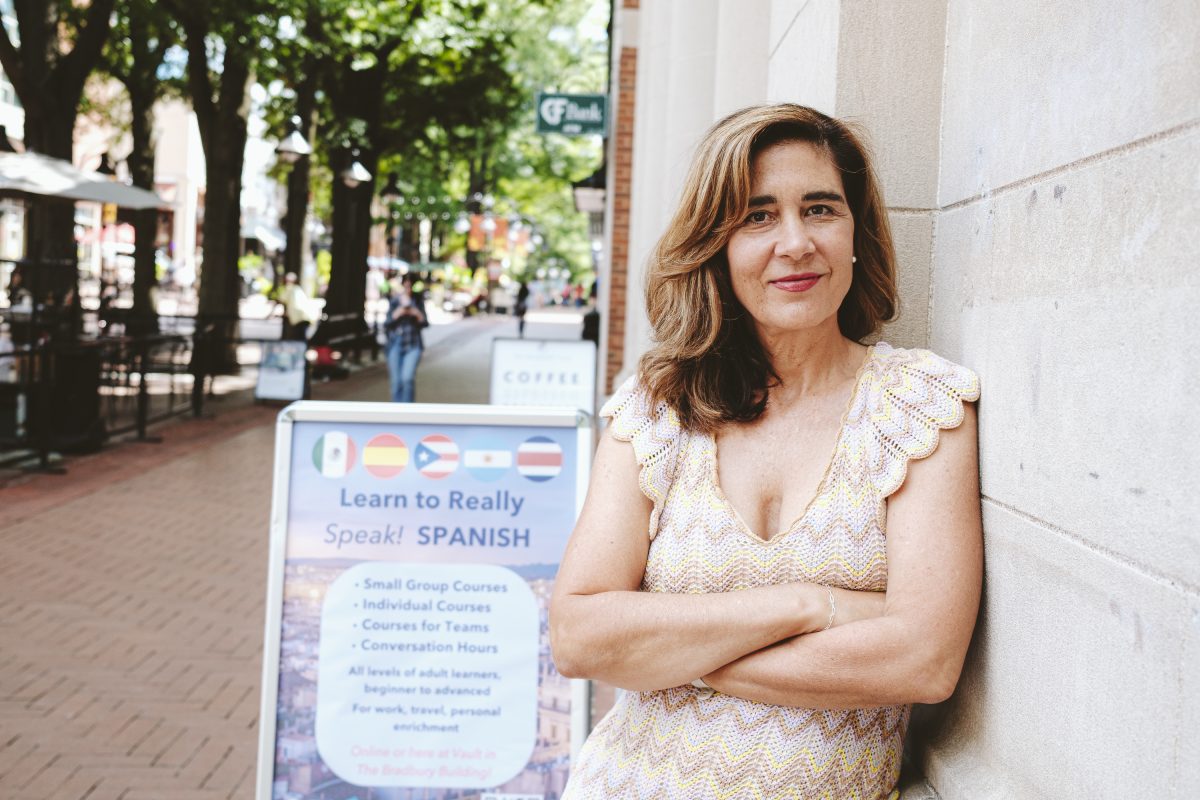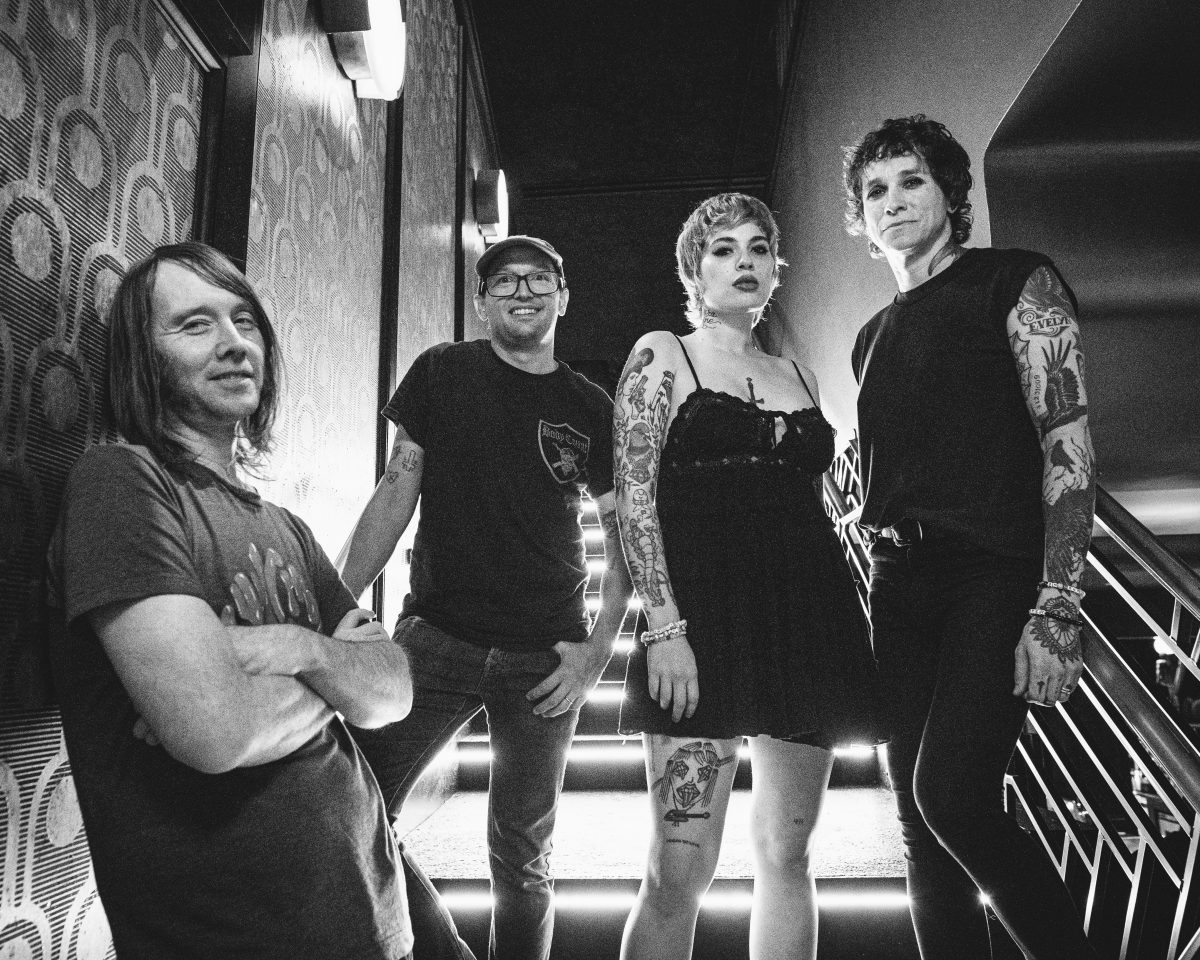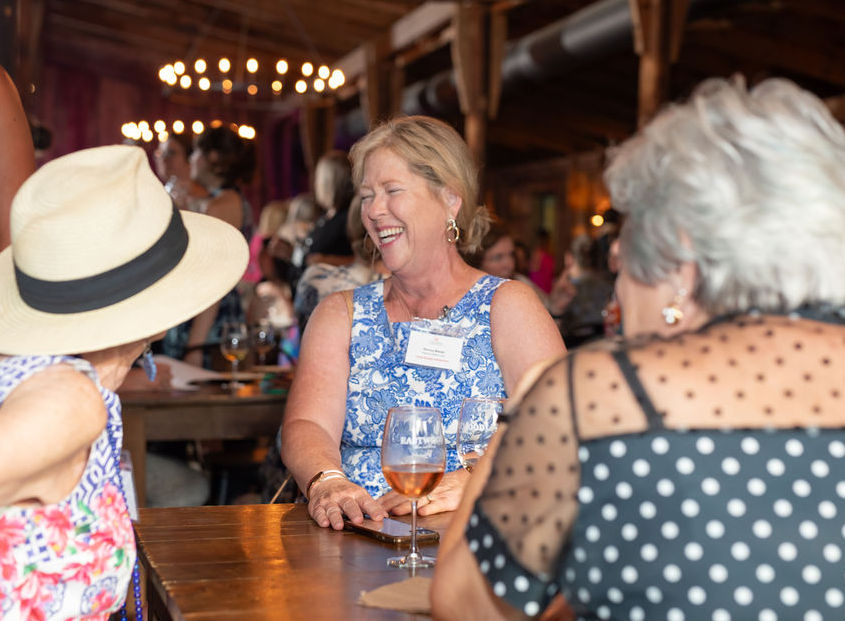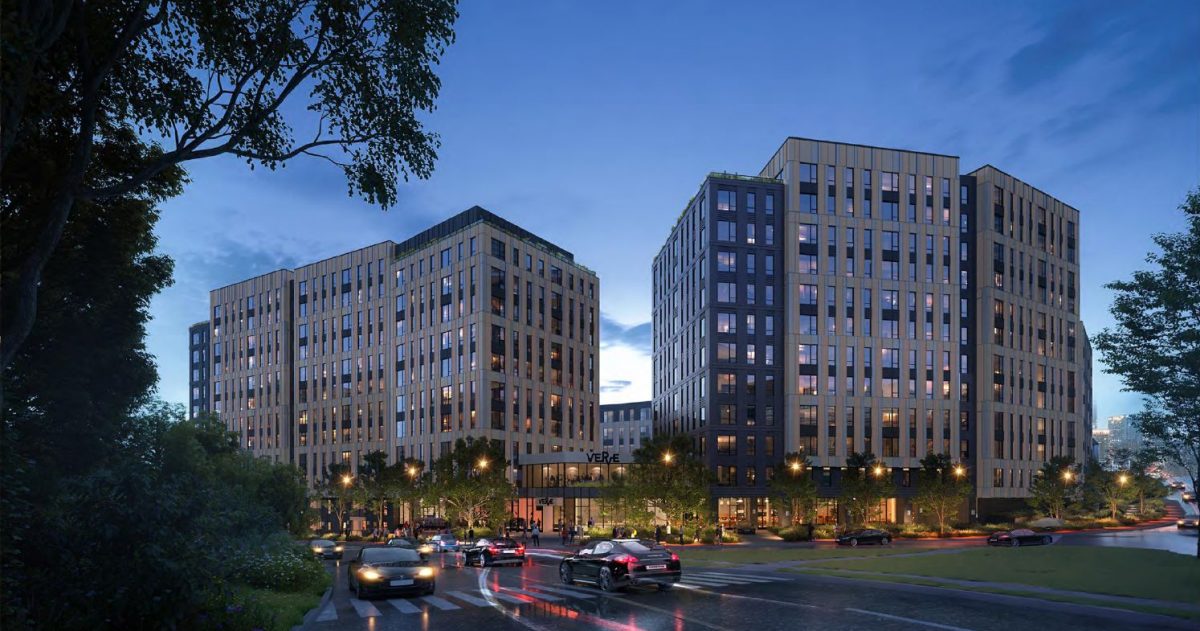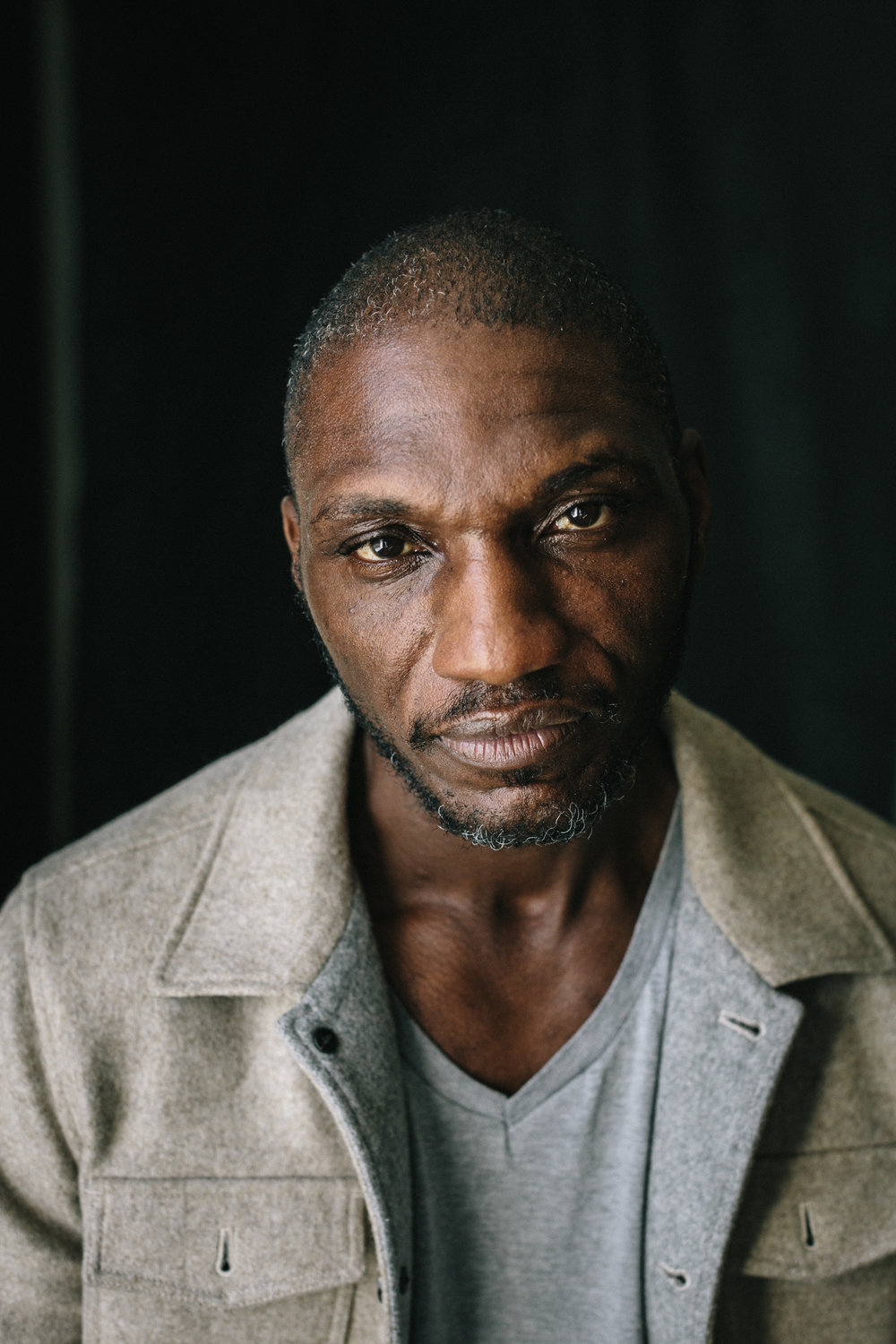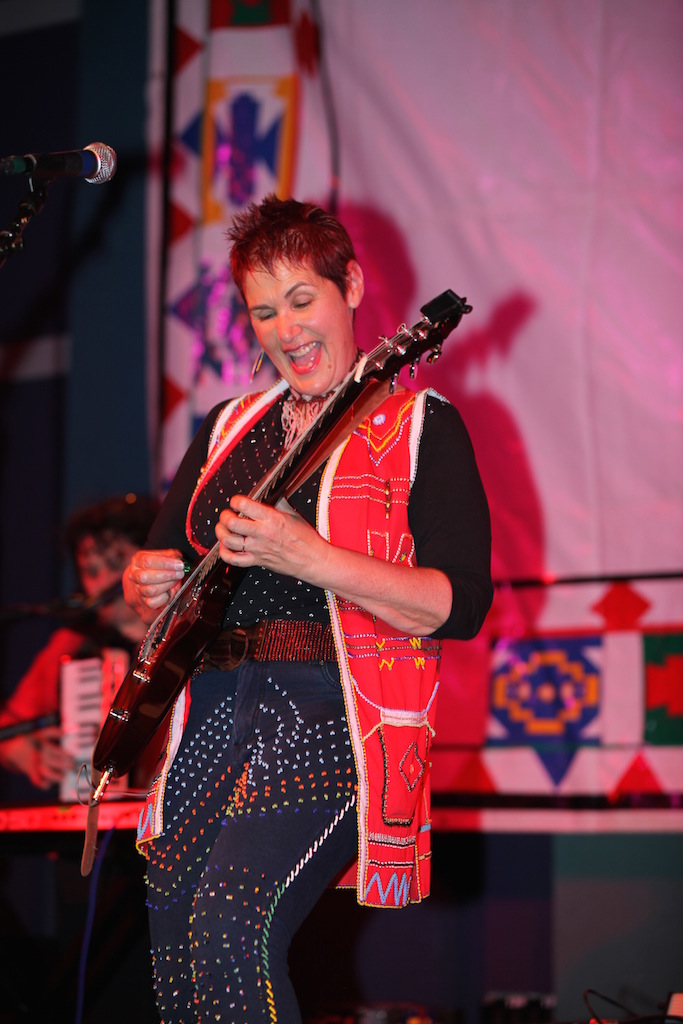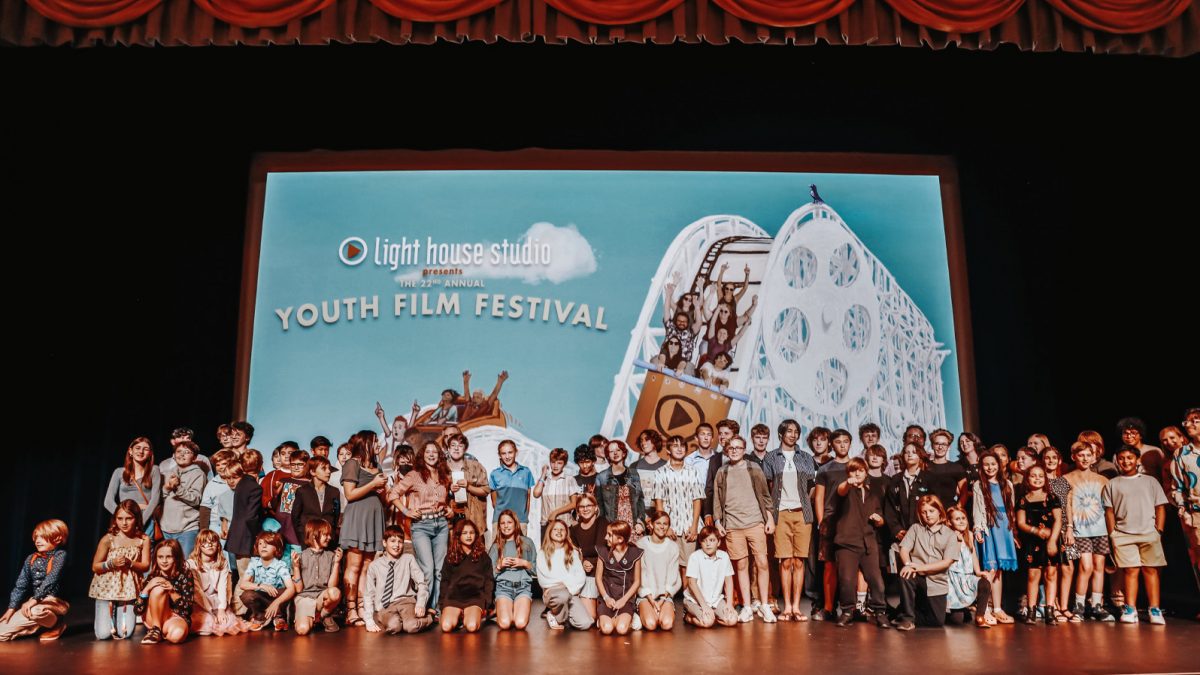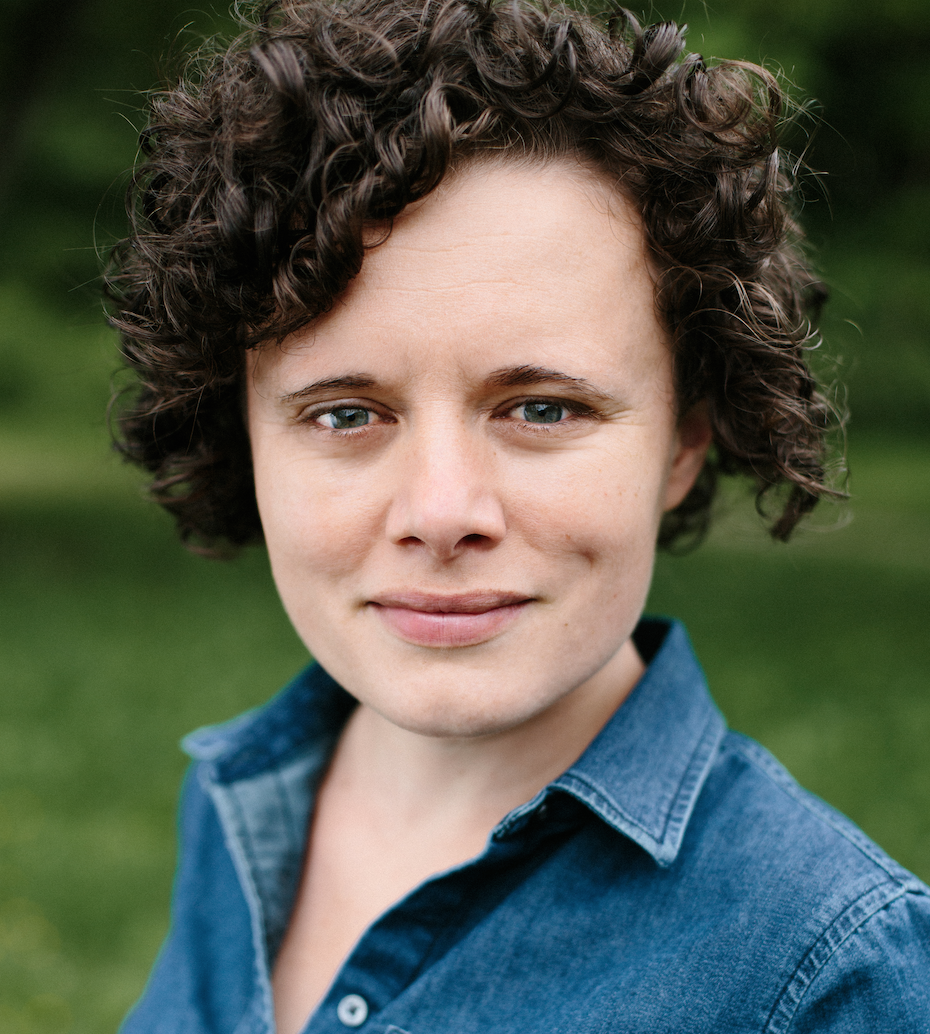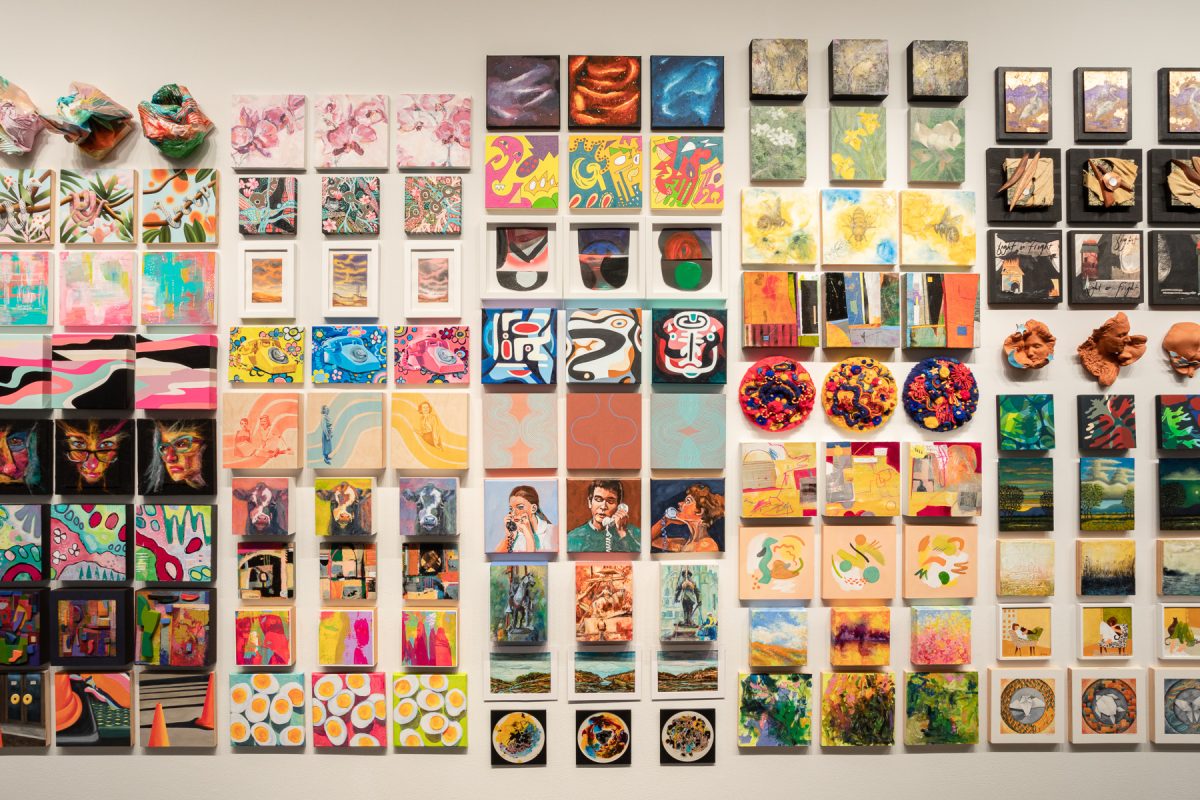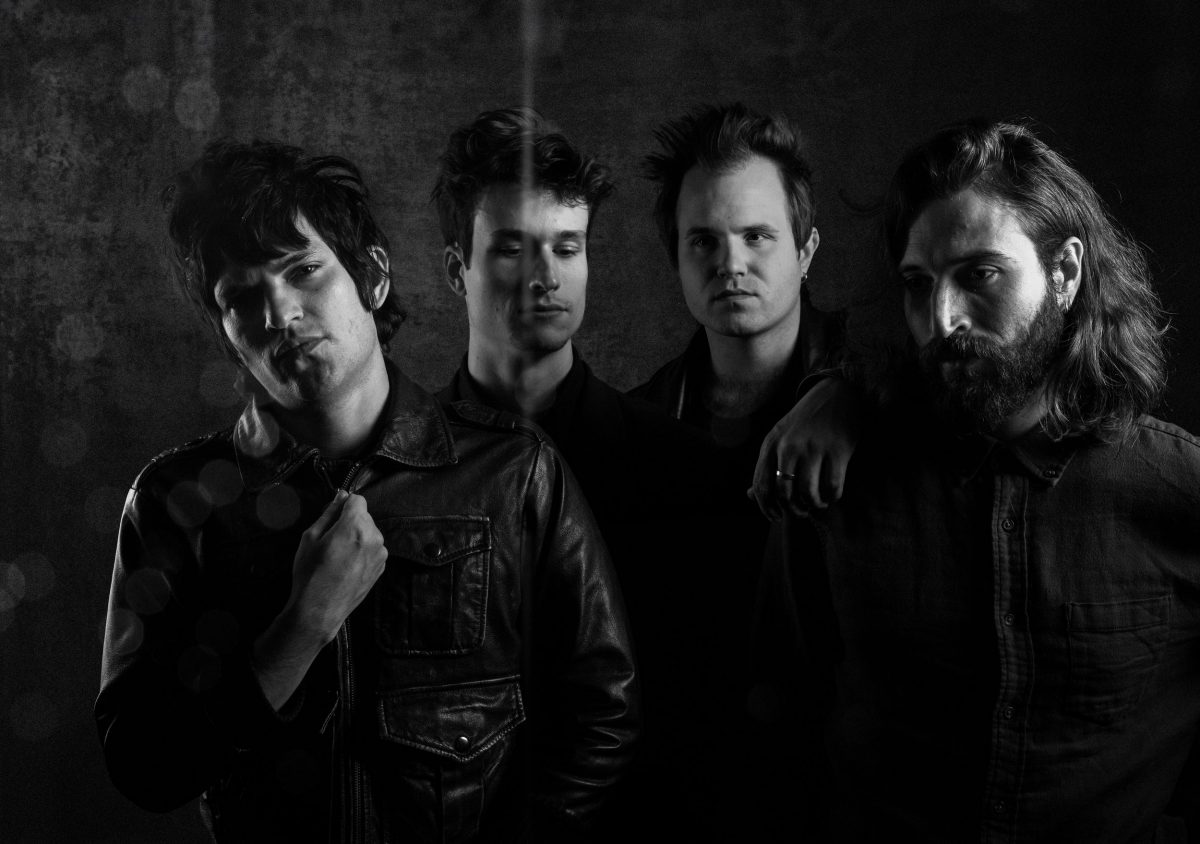Twenty years ago, Christina Ball was teaching evening Italian courses to adult continuing education students at the University of Virginia. She had come up in academic spaces, doing a Ph.D. at Yale and teaching for a while at Wake Forest before moving to Charlottesville. But as she watched the waitlists for those evening courses grow, she realized: Not everyone is a UVA student. There are countless people in this community who want to learn to speak a new language, and there’s nowhere for them to learn.
She had gotten to know Mark and Victoria Cave, who were starting their Italian coffee bar, Milano, in Main Street Market, and they generously offered her the space to spin off on her own. It was perfect: Ball was focused on helping people get ready to travel to Italy, and now they could practice over a proper caffè. Ecco Italy, as she called the new venture, quickly became something bigger than a place to learn to speak Italian. It was a celebration of Italian culture, with cooking classes, movie screenings, and travel partners. It was a bridge to Italy.
Five years later, Ecco Italy had become Speak! Language Center. “That’s when I had to really learn to run a business,” Ball says, “to find the partnerships, to make a profit, and not just do this as a hobby.” The list of languages got longer, the team got bigger, and the company’s scope got wider. In the years since, they have taught 22 languages: Swahili, Czech, Pashto, Korean, Hebrew, and many more. The team now includes teachers and staff members working remotely from Argentina, Portugal, Bangladesh, and Ukraine. The company’s B-Speak! program, which coaches international students in professional English online, started at UVA’s Darden School of Business and now serves business schools across the U.S. Two decades in, Speak! is becoming a national brand.
Yet it remains an essentially local business.
Language is fundamentally a mode of connection, and learning languages well requires real connections with real human beings. This basic observation about the nature of languages fits well with developments in the study of language acquisition over the last few decades. If your goal is to know a language the way a native speaker knows a language, learning formal grammar rules is surprisingly unimportant. (A native Spanish speaker probably can’t explain to you when to use the subjunctive in Spanish any better than you can explain when to use the pluperfect in English!) What is important is what language educators call comprehensible input. You need meaningful messages you can understand—as many of them as you can possibly get. It is even better if those messages come from a person with whom you have a real relationship rather than from a book of exercises or a chatbot.
Ball is generous but firm when someone mentions programs like Duolingo or Babbel (or Rosetta Stone, in the old days). “We love those apps because they are a cheap and quick way for people to experiment with different languages and sounds,” she says. They help people develop an interest in a language. But when they’re ready to get serious, they need to spend time with real human beings. Even better, they need to spend time with a human being who cares about what they have to say and who is willing to slow down and engage in a way that they can understand. This is what parents do for children as they are learning, and it is what a good teacher does for a student. Teachers connect with their students, and the connection itself is what drives the learning.
In the wake of the pandemic, a lot of us have been thinking again about the need for connection. The isolation of quarantine was hard. It pushed many of us more online, in hopes of maintaining our relationships from a distance. And that often worked! We were able to stay in touch with those we couldn’t touch. Some of us even found new connections, new communities, that we might never have found otherwise. Speak! has flourished by moving some of its work online, connecting with teachers and students in every part of the world.
But moving online is double-edged. It connects us with those at a distance while pulling us away, or at least threatening to pull us away, from those up close. We have seen it in our politics, where we hear more from influencers and talking heads than we do from neighbors; we have seen it in our cities, where it becomes easier to order something direct from a factory far away than to go to the Downtown Mall; we have seen it in our work, where even the occasional stolen minute of water cooler gossip has given way to the crisp efficiency of a Zoom meeting that begins precisely on time. We all know these tensions. These are the cliches of daily life now.
James Barton helped start Studio IX and Vault Virginia, two of the growing number of coworking spaces in Charlottesville. As a language lover himself (he played soccer in Mexico as a high schooler and studied for his MBA in China), Barton was a natural partner for a company like Speak!. But more importantly, he shares with Ball a deep concern for the difficulties of developing real connections between real human beings. His coworking spaces are not just meant to provide a desk and a wifi connection; they’re meant to provide community.
At the center of his work at Vault Virginia, housed in the Bradbury Building on the Downtown Mall, is The Guild. He calls The Guild a “culture club.” It’s an effort to create a better, more engaging water cooler for Charlottesville’s remote workers and entrepreneurs. The natural tendency in our society right now is toward isolation, Barton acknowledges, even after the pandemic. It’s easy just to go back home at night and withdraw into our devices. But “humans are social creatures,” he says. “The work each of us does is, ideally, an expression of who we are and the good we hope to bring into the world. I believe that we are much more capable of achieving that when we put ourselves in spaces where we can support and inspire one another.”
Vault Virginia and The Guild are attempts to create such a space. “I want people to have something of substance to do on weeknights,” Barton says. A concert, a film, a gallery talk.
Speak! moved into Vault Virginia last month in large part because Ball and Barton recognized each other as kindred spirits. Ball has already started to contribute to Vault’s weeknight offerings with a free event she calls Tea and Travel, where people can come to learn about a new place from someone who has spent time in the culture—Micronesia in May, Tuscany in June, Portugal in July. In August, more than 80 people came out to learn something about Sicily. This month, Ball is launching informal conversation hours at the Bradbury Café, where people can come and practice their Spanish, Italian, or French—also for free—with a Speak! teacher. So even as she develops her online programs, Ball is investing deeply in face-to-face relationships. Together with Barton, she is working to create the kinds of spaces that spark new connections between people who live here in Charlottesville, and also between Charlottesville and the rest of the world.
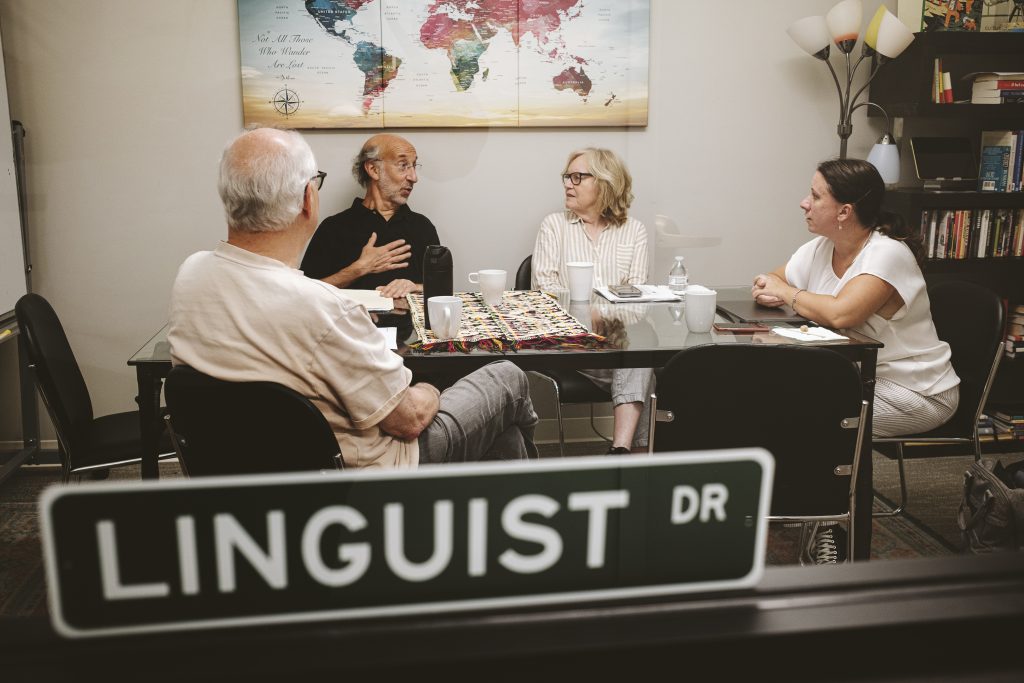
Ball grew up around Italian culture (her grandmother was from Gaeta, not far from Naples), but the first language she fell in love with was French. She found her way to Italian in college, while studying art history at Bowdoin. She came to the work of language teaching as a Europhile. But now, Speak!’s biggest languages are Spanish and, perhaps surprisingly, English. “I never thought I would teach English,” Ball admits. But Spanish and English are the languages that this community most needs.
Speak! now works extensively with the University of Virginia, for example, helping Spanish-speaking workers train for new jobs that require English and running language and culture courses for English-speakers who work with Spanish-speakers. Ball has also been nurturing relationships with a variety of local companies with multilingual teams. This fall, Speak! will start teaching Spanish to construction workers at Martin Horn and employees at the Farmington Country Club.
For those of us who live most of our lives in monolingual spaces, it can be easy to overlook how many of the relationships that make our communities work depend on the ability to speak across cultural lines. It can also be easy to overlook how connected we are to other parts of the globe. The students at Speak! are a window into the sheer variety of those connections: one has coworkers from the Caribbean, another is getting to know in-laws in Mexico, another is planning a research project in Portugal, another is heading to college in Japan, another has a daughter working in Lebanon.
Franco Perez is one of the Spanish teachers at Speak!. Perez grew up in Esperanza, Argentina—a city about the size of Charlottesville—and lives now in Buenos Aires. He’s worked with Ball for the last two years to develop their online Spanish course. He’s met a number of Speak! students who were traveling in South America. Now, for the first time, he’s in Charlottesville. He’s showcasing Argentinian films in the Vault Virginia screening room, hosting Spanish conversation hours, meeting some of his longtime online students in the flesh, and, of course, he says, “exploring the beautiful mountains and vineyards that Charlottesville is known for.”
For all the growth that Speak! has experienced over the last two decades, Ball is in some ways returning to her roots. All those years ago, from her space above Milano, she was helping people engage deeply in a new culture—its language, yes, but also its food, art, and customs. Now, from her new space above the Bradbury Café, she’s back at it. She has even re-focused on the needs of travelers, building out a new online course series for English-speakers preparing to go to Portugal or France. (“This is my passion project right now,” she says. “This is what I do on the nights and the weekends.”) But her bridges are much bigger now, and they bring as many people here as they send out into the world.
There is a lot of pressure on businesses to expand their reach by going online. Ball has done some of that—and quite successfully. But what makes Speak! unique among language centers is its rootedness in a particular place and its commitment to real human beings. Moving to the Downtown Mall, she says, means she can “go all in on Charlottesville.”
